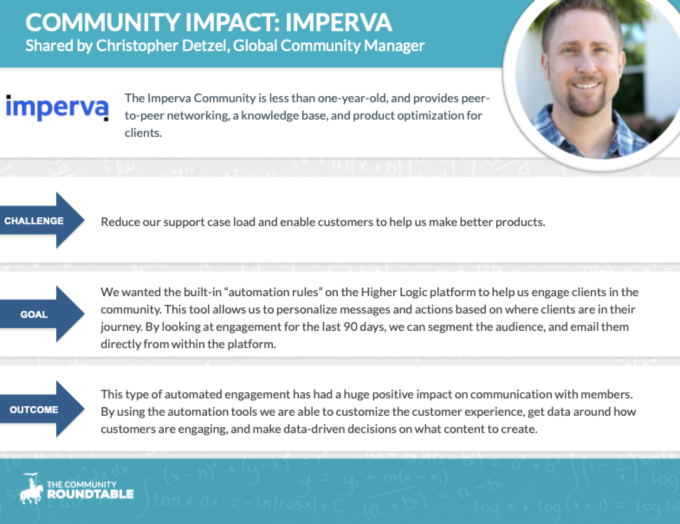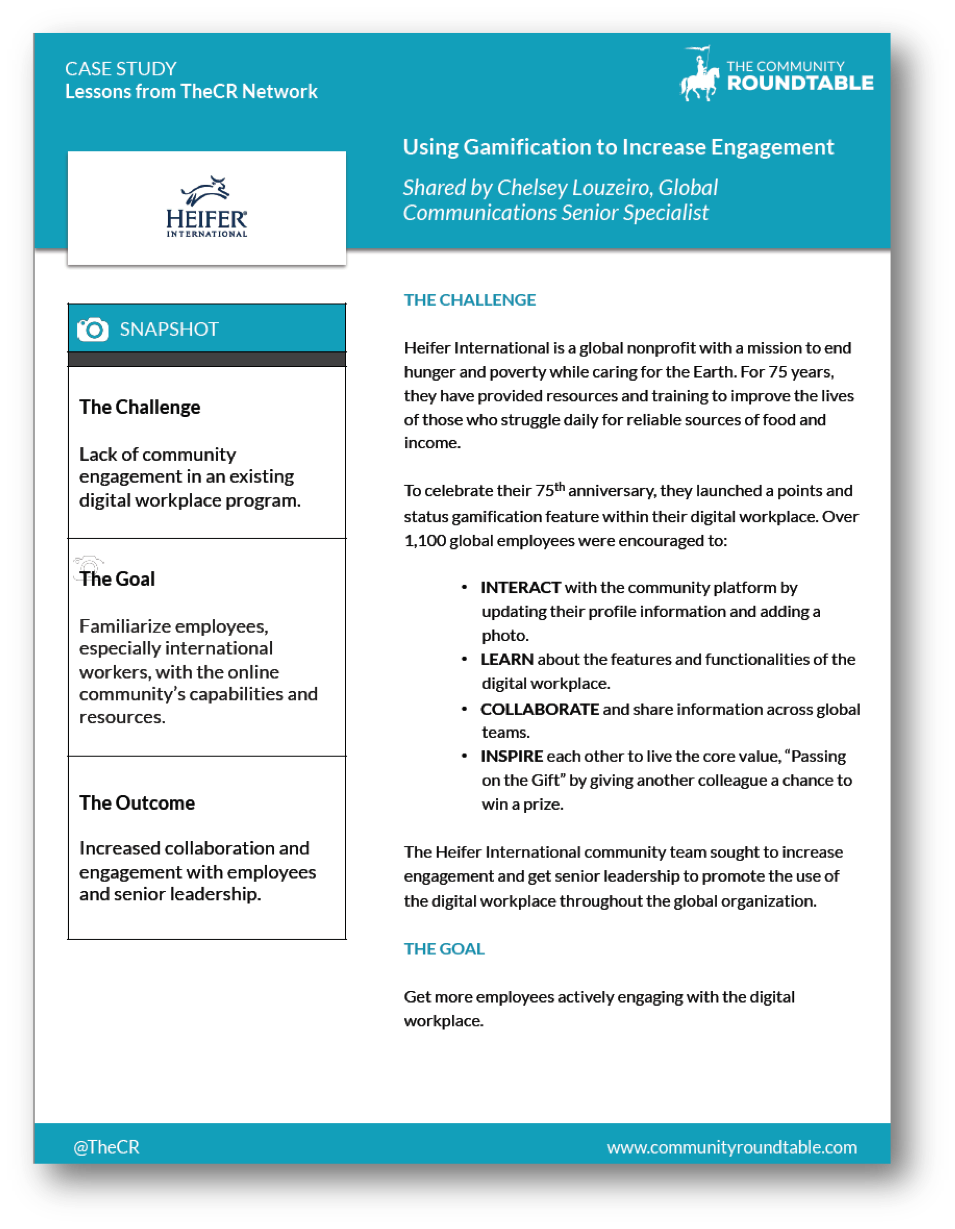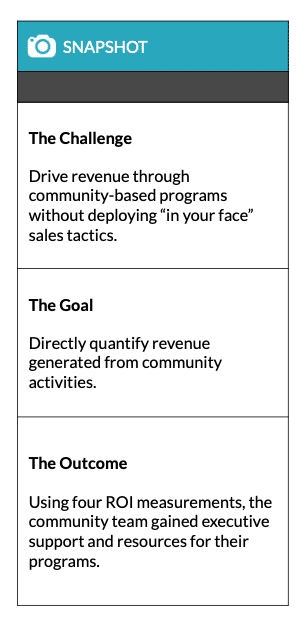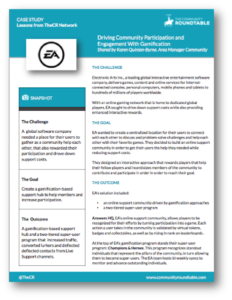
When individuals are inspired, engaged, and empowered they fuel a self-reinforcing positive feedback loop.
Success breeds success because people see engagement rewarded, which in turn increases how comfortable they are engaging in the community themselves. People live up or down to the expectations set by those around them – and their imaginations and ambitions are limited or expanded based on what they can see in their communities.
Empowerment Challenge: How many processes can you move out of email or off of paper to your community?
- Have a question? Start archived FAQs in your community, and make sure there is a way for members to post new questions (and get new answers from SMEs).
- Need support? Have your members submit support tickets in your community. Share the answers back to the community (when applicable) to create transparency and avoid duplicate work in the future.
- Soliciting customer or employee evaluations from a program in operations? Have customers provide real-time feedback in a community and encourage product managers to follow along and participate when appropriate.
- Want to reward and recognize brand champions? Use member spotlights and AMAs to highlight outstanding people in your community.
By moving these workflows to your community, you can increase efficiency, but more significantly you can improve customer/member satisfaction. Our research shows that members feel better about their contributions when they have a clear path to follow.
Check out this community case study from Christopher Detzel at Imperva to see how they used an online community program to reduce their support caseload and empower their customers to help them make better products.





